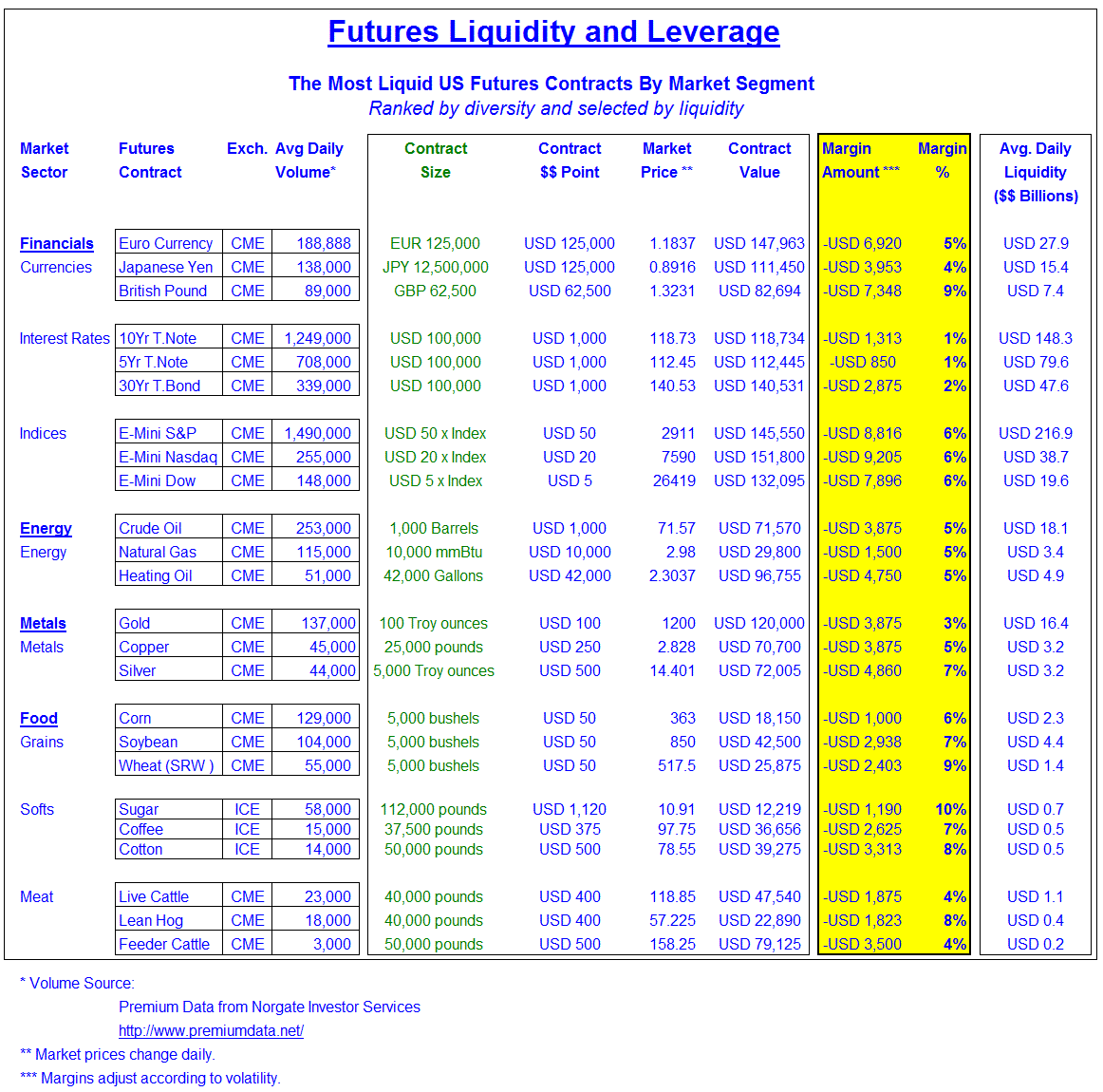The Great Decoupling: Economic Shifts And Global Implications

Table of Contents
The Drivers of the Great Decoupling
Several interconnected factors are fueling the Great Decoupling. These drivers are fundamentally altering the dynamics of global trade and international relations. Understanding these underlying causes is essential for comprehending the broader implications.
-
Rising Geopolitical Tensions: The escalating rivalry between major global powers, particularly the United States and China, is a primary driver. This tension manifests in various forms, including trade disputes, technological competition, and ideological clashes, all contributing to a growing distrust and a desire for economic independence. The increasing assertiveness of China in the South China Sea and its growing influence across Africa and Latin America further complicate the global landscape.
-
Trade Wars and Protectionist Policies: The rise of protectionism, marked by the imposition of tariffs, trade barriers, and other restrictive measures, is directly disrupting established global supply chains. Countries are increasingly prioritizing domestic industries, leading to a fragmentation of global value chains and a reduction in cross-border trade. This shift toward protectionism is often driven by a desire to safeguard national security and protect domestic jobs.
-
Pandemic Impact: The COVID-19 pandemic exposed the fragility of highly integrated global supply chains. Disruptions to manufacturing, transportation, and logistics highlighted the risks associated with over-reliance on single sourcing and geographically concentrated production. This vulnerability prompted many nations to prioritize resilience and diversification in their supply chains.
-
Technological Rivalry: The competition for technological dominance, particularly in areas like 5G, artificial intelligence (AI), and semiconductors, is intensifying. This technological rivalry is driving nations to invest heavily in domestic research and development, leading to a degree of technological decoupling and a race for self-sufficiency in critical technologies.
-
National Security Concerns: Growing concerns about national security are pushing countries to prioritize domestic production of essential goods and technologies. This is particularly true for items deemed critical for defense or essential infrastructure, leading to a re-evaluation of global supply chains and a focus on "friend-shoring" – aligning supply chains with trusted allies.
Economic Implications of Decoupling
The Great Decoupling has profound economic consequences, impacting businesses, consumers, and governments worldwide. These effects are complex and multifaceted, ranging from supply chain restructuring to inflationary pressures.
-
Supply Chain Restructuring: Companies are actively restructuring their global supply chains, moving away from single-sourcing models towards diversification and regionalization. Near-shoring (moving production closer to home) and friend-shoring (prioritizing partnerships with trusted allies) are becoming increasingly common strategies. This restructuring leads to higher costs, but also increased resilience and reduced vulnerability to geopolitical shocks.
-
Regionalization of Trade: Regional trade agreements are gaining importance as countries seek to strengthen economic ties within specific geographic areas. This includes the expansion of existing regional blocs, such as the European Union and the ASEAN, as well as the formation of new alliances. This regionalization leads to increased intra-regional trade and a reduction in reliance on global trade networks.
-
Inflationary Pressures: The decoupling process can contribute to inflationary pressures. Increased transportation costs associated with shorter and more geographically dispersed supply chains, alongside reduced competition due to trade barriers, can drive up prices for goods and services.
-
Investment Shifts: Investment flows are shifting as companies adjust their global strategies in response to geopolitical risks and trade barriers. This may involve a redirection of investments towards domestic markets or toward countries with more stable and predictable political and economic environments.
-
Economic Fragmentation: The fragmentation of global value chains can lead to reduced overall economic efficiency and potentially slower global growth. The specialized nature of modern production often requires global collaboration; decoupling can disrupt this collaboration.
The Role of Technology in Decoupling
Technology plays a crucial role in both driving and mitigating the effects of the Great Decoupling.
-
Automation and AI: Automation and AI are enabling companies to bring manufacturing closer to home, facilitating reshoring initiatives. This technology reduces reliance on low-cost labor in distant locations, making domestic production more economically viable.
-
Digitalization: Digitalization is facilitating greater transparency and control over supply chains, enhancing resilience. Real-time tracking and data analytics allow companies to identify and mitigate potential disruptions more effectively.
-
Technological Nationalism: However, technological nationalism, the prioritization of domestic technological development, poses a challenge. This can hinder cross-border collaboration and knowledge sharing, potentially slowing down technological progress and increasing the costs of innovation.
Geopolitical Consequences of the Great Decoupling
The Great Decoupling has significant geopolitical implications, potentially reshaping the global balance of power and influencing international relations.
-
Power Shifts: The decoupling process is likely to reshape the global balance of power, potentially leading to increased competition between major economic blocs. The relative economic strength of different nations will shift, influencing geopolitical alignments.
-
International Cooperation: International cooperation on global challenges may become more difficult as countries prioritize their own national interests. This can impact efforts to address climate change, pandemics, and other issues requiring global collaboration.
-
New Alliances: New economic and political alliances may emerge as countries seek to strengthen their positions in the shifting global landscape. Countries may form closer ties with like-minded nations to reduce their vulnerability and enhance their collective economic and political power.
-
Reduced Global Stability: Decoupling may lead to reduced global stability and increased risks of conflict. Economic competition can escalate into political and even military tensions.
-
Increased Protectionism: Protectionist policies will likely continue to rise as nations seek to protect domestic industries and reduce reliance on foreign suppliers. This protectionism can create trade wars and further fragment the global economy.
Conclusion
The Great Decoupling represents a profound and ongoing transformation of the global economic order. Its implications for international trade, geopolitical relations, and global economic stability are far-reaching and complex. Understanding the drivers and consequences of this phenomenon is crucial for businesses, governments, and individuals alike. Proactive adaptation and strategic planning are essential for navigating this evolving landscape. Businesses must diversify their supply chains, governments must foster international cooperation where possible, and individuals must prepare for a more complex and potentially less integrated global economy. Staying informed about the latest developments in the Great Decoupling is vital for success in this new era of economic and geopolitical uncertainty. Learn more about the complexities and implications of the Great Decoupling and how it impacts your business or nation.

Featured Posts
-
 Watch Oklahoma City Thunder Vs Houston Rockets Game Time Channel And Betting Guide
May 08, 2025
Watch Oklahoma City Thunder Vs Houston Rockets Game Time Channel And Betting Guide
May 08, 2025 -
 Xrp Futures And Options Impact On Price Recovery
May 08, 2025
Xrp Futures And Options Impact On Price Recovery
May 08, 2025 -
 Different Perspective Rogue One Star On A Well Loved Character
May 08, 2025
Different Perspective Rogue One Star On A Well Loved Character
May 08, 2025 -
 Counting Crows Slip Out Under The Aurora Exploring The Songs Musicality And Production
May 08, 2025
Counting Crows Slip Out Under The Aurora Exploring The Songs Musicality And Production
May 08, 2025 -
 Counting Crows The Snl Effect And Lasting Career Impact
May 08, 2025
Counting Crows The Snl Effect And Lasting Career Impact
May 08, 2025
Latest Posts
-
 Is Daycare Harmful A Psychologists Claims And The Expert Response
May 09, 2025
Is Daycare Harmful A Psychologists Claims And The Expert Response
May 09, 2025 -
 Daycare Debate Psychologist Sparks Outrage With Viral Podcast Claims
May 09, 2025
Daycare Debate Psychologist Sparks Outrage With Viral Podcast Claims
May 09, 2025 -
 Community Colleges Get 56 M To Combat Nursing Crisis
May 09, 2025
Community Colleges Get 56 M To Combat Nursing Crisis
May 09, 2025 -
 Anchorage Protests Thousands Demonstrate Against Trump Policies Again
May 09, 2025
Anchorage Protests Thousands Demonstrate Against Trump Policies Again
May 09, 2025 -
 56 Million Boost For Community Colleges To Tackle Nursing Shortage
May 09, 2025
56 Million Boost For Community Colleges To Tackle Nursing Shortage
May 09, 2025
